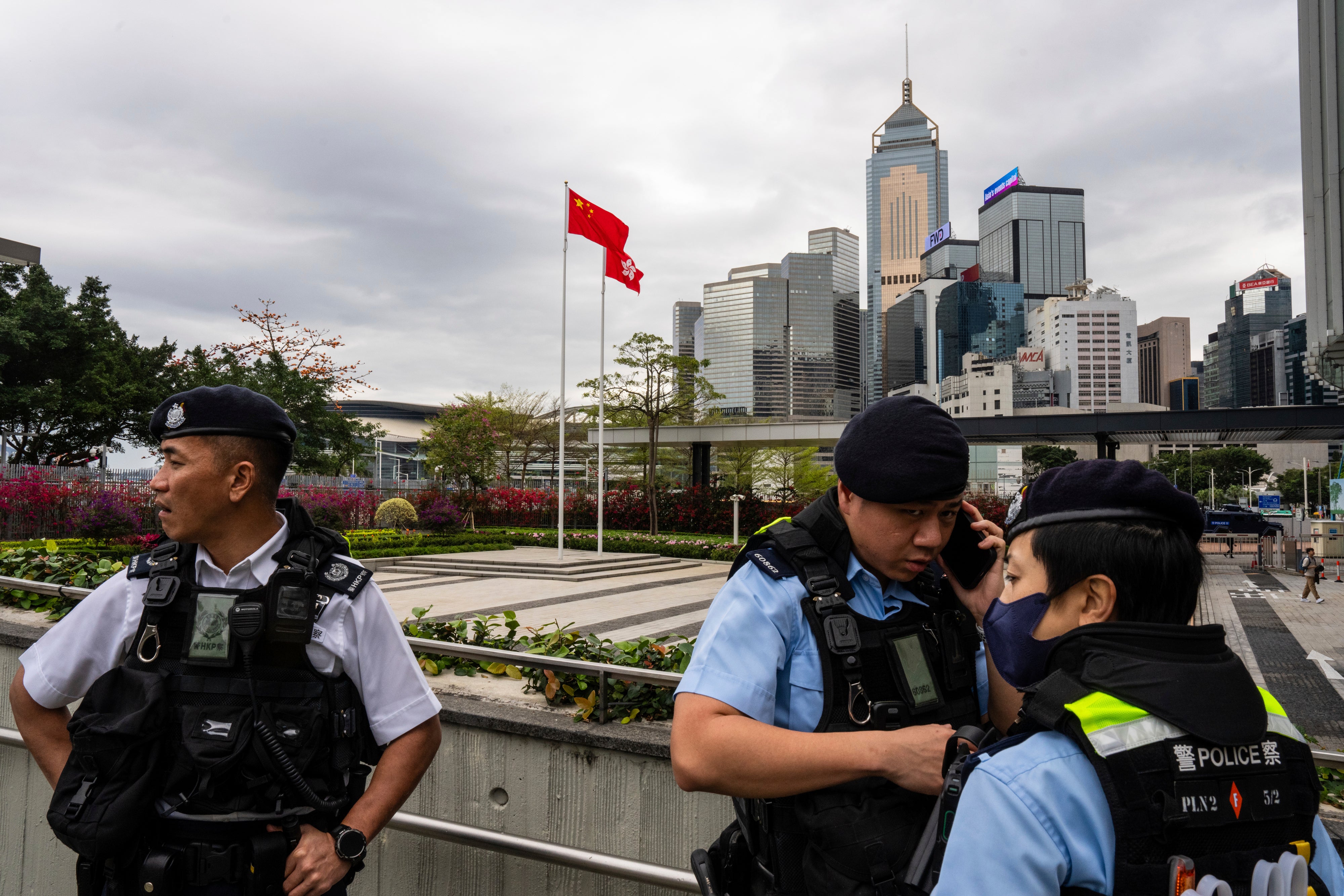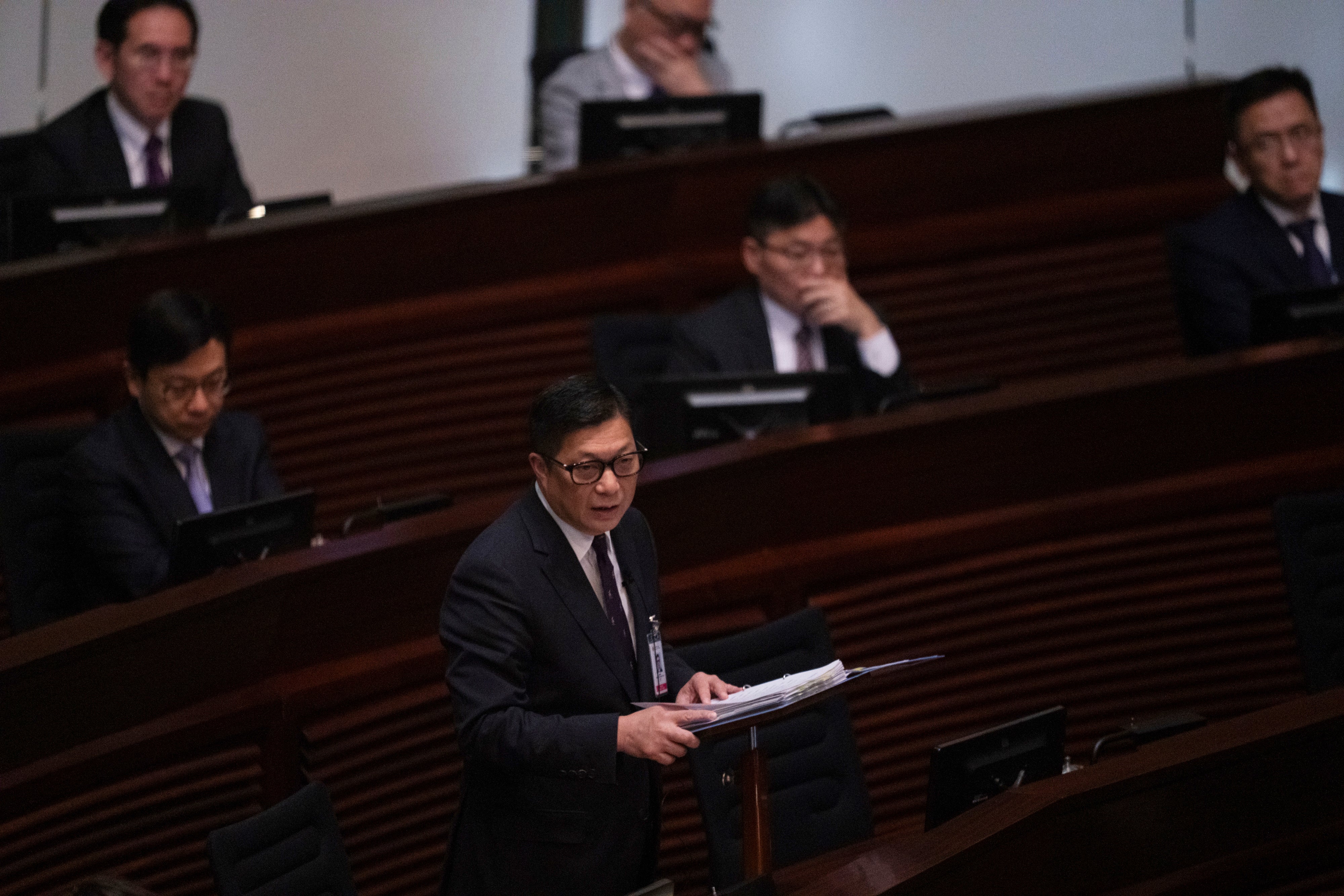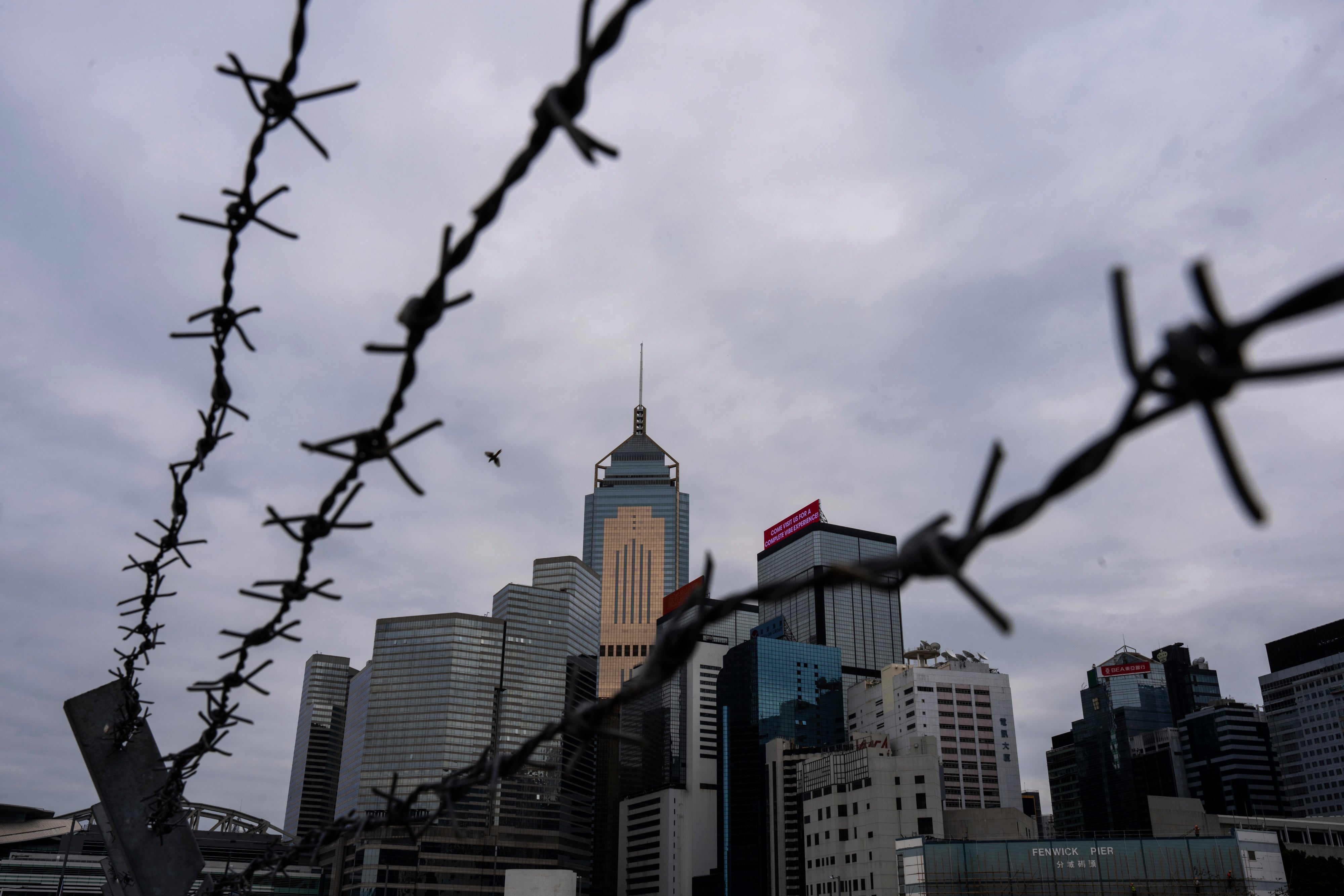Hong Kong passes draconian new national security law – in fresh crackdown on dissent
Pro-China legislature passes bill imposing new penalties for treason and insurrection in move decried by human rights groups

Hong Kong has passed a tough new national security law – the latest step in a sweeping political crackdown that was triggered by pro-democracy protests in 2019.
The law – fast-tracked through its final stage by the city's staunchly pro-China legislature in under two weeks – expands on an existing national security law imposed by Beijing four years ago. That law already criminalises secession, subversion, terrorism and collusion with foreign forces in Hong Kong – and has already largely silenced opposition voices in the financial hub.
The new law, known as Article 23, threatens stringent penalties for a wide range of actions that authorities deem a threat to national security, with the most severe – including treason and insurrection – punishable by life imprisonment. Lesser offences, including the possession of seditious publications, could also lead to several years in jail. Some provisions allow criminal prosecutions for acts committed anywhere in the world.
Hong Kong’s Legislative Council, which is packed with Beijing loyalists following an electoral overhaul, expedited the process. After the bill was unveiled on 8 March, a committee held daily meetings for a week, following an appeal by Hong Kong leader John Lee to push the law through “at full speed”. All 88 lawmakers and the Legislative Council president voted unanimously to enact the legislation, which will come into effect on 23 March.
Hong Kong's mini-constitution, the Basic Law, requires the city to enact a home-grown national security law. A previous attempt in 2003 sparked a massive street protest that drew half a million people and forced the legislation to be shelved. Such protests against the current bill were absent, largely due to the chilling effect of the existing security law.
Human rights groups have reacted with outrage. “With this draconian legislation, the Hong Kong government has delivered another crushing blow to human rights in the city. The authorities have enacted this law in the blink of an eye, killing off any remaining shred of hope that public outcry could counter its most destructive elements," said Amnesty International’s China director, Sarah Brooks.

“Above all, this is a devastating moment for the people of Hong Kong, hundreds of thousands of whom have previously marched through the streets to demonstrate against repressive laws, including an incarnation of this one in 2003. Today they lost another piece of their freedom; any act of peaceful protest is now more dangerous than ever,” she added.
Amnesty called on nations such as the UK, and anyone else who carries influence when it comes to Hong Kong, “not to neglect Hongkongers in their hour of need, but instead to ramp up pressure on the territory’s authorities to respect human rights and repeal all laws that violate them”.
In a sign of Beijing’s influence on the Hong Kong Legislative Council, its president, Andrew Leung, said he believed all legislators were honoured to have taken part in this “historic mission”.
He went on: “I fully agree with what the chief executive said: the sooner the legislation is completed, the sooner national security will be safeguarded.” Beijing had promised to preserve Hong Kong’s legislative system and its people’s rights and freedoms for 50 years when the former British colony was returned to Chinese rule in 1997.
Hong Kong’s political scene has changed dramatically since the massive 2019 street protests that challenged China’s rule over the semi-autonomous territory and the imposition of Beijing’s National Security Law.
Many leading activists have been prosecuted, while others sought refuge abroad. Influential pro-democracy media such as Apple Daily and Stand News were shuttered.

The new law will empower authorities to use greater financial sanctions to punish people who have fled abroad, potentially preventing them from being hired, leasing property, or starting businesses. In 2023, police offered bounties of 1 million Hong Kong dollars (£100,000) on more than a dozen activists living abroad, including former legislators Nathan Law and Ted Hui, whom they accuse of colluding with external forces to impose sanctions on Hong Kong and China.
The crackdown has prompted an exodus of disillusioned young professionals and middle-class families to the US, Britain, Canada and Taiwan.
Officials in Hong Kong insist the new security law balances security with safeguarding rights and freedoms. The city government said it is needed to prevent a recurrence of the protests, and that it will only affect “an extremely small minority” of disloyal residents.
The measure targets espionage, disclosing state secrets, and “colluding with external forces” to commit illegal acts, among other activities. Its provisions include tougher penalties for people convicted of endangering national security by certain acts if they’re also found to be working with foreign governments or organisations to do so.
Those who damage public infrastructure with the intent to endanger national security could be jailed for 20 years, or, if they have colluded with external forces, for life. In 2019, protesters occupied Hong Kong’s airport and vandalised railway stations.
Businesspeople and journalists have expressed fears that a broad law against the disclosure of state secrets and foreign interference will affect their day-to-day work.
Observers are watching closely to see if the authorities will extend enforcement to other professional sectors, and to examine its implications on liberties for Hong Kongers.
Associated Press
Join our commenting forum
Join thought-provoking conversations, follow other Independent readers and see their replies
Comments
Bookmark popover
Removed from bookmarks